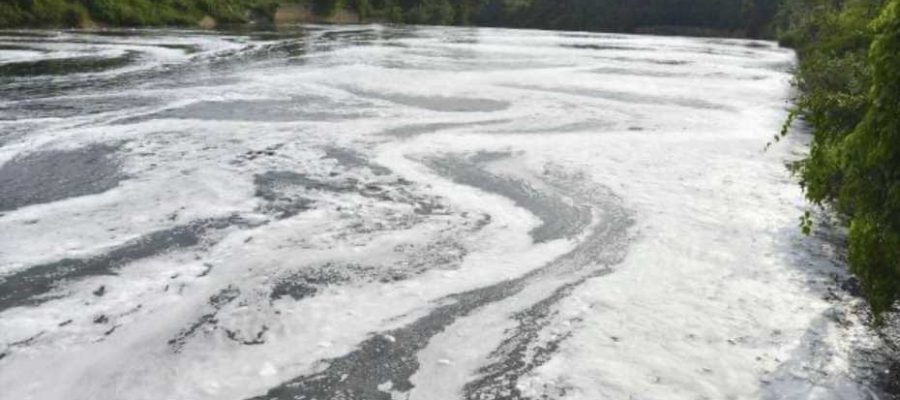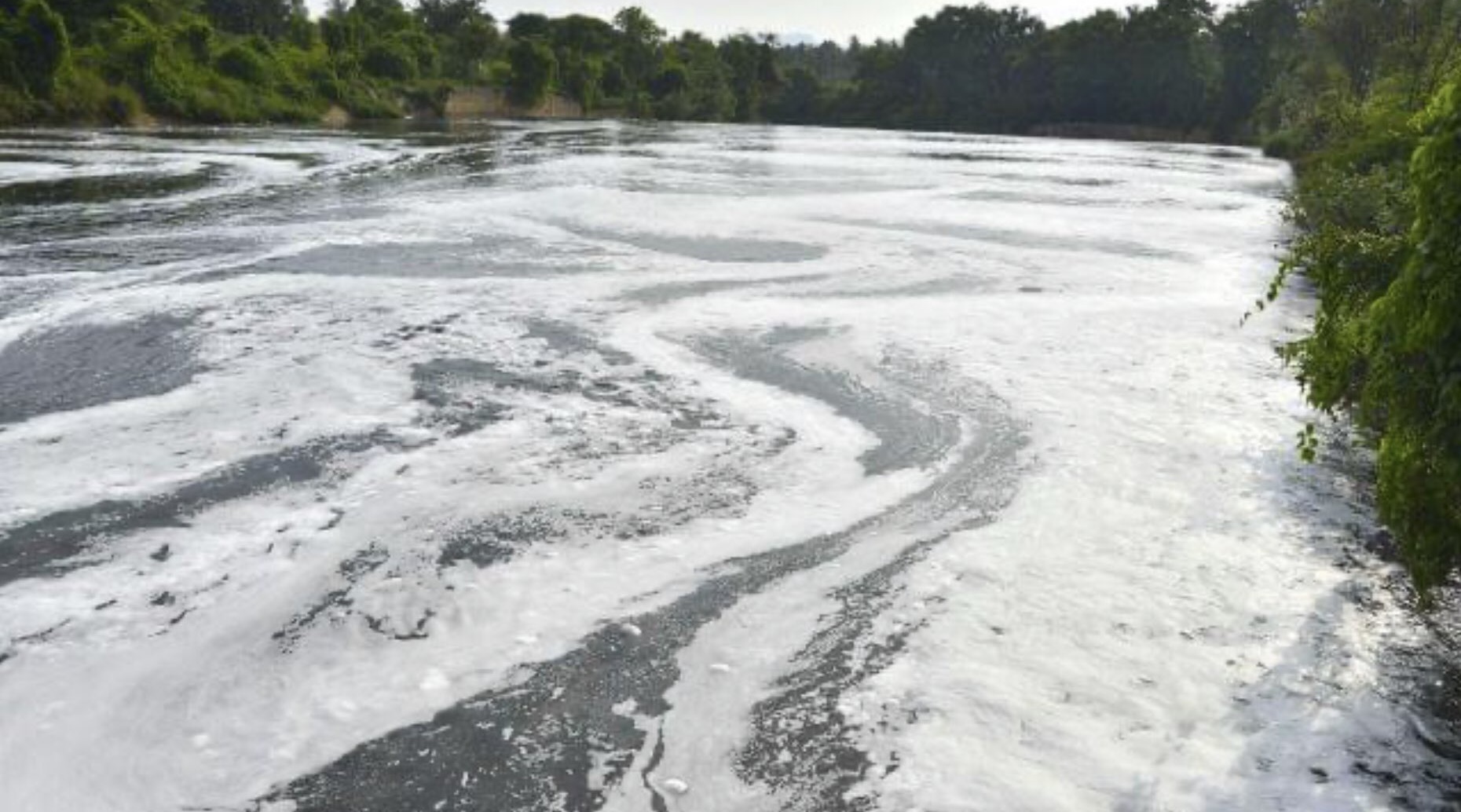The river will be revived and the treated water will be used for irrigation and filling lakes in the outskirts of the city.
The Karnataka government plans to take up a project worth Rs 1500 crore to treat the Vrishabhavathi river, which is now filled with sewage, waste, and froth.
According to the Minister for Environment, Ecology and Tourism C.P. Yogeshwar, the sacred river fabled to have originated from the Bull Temple in Basavanagudi area in Bengaluru, is polluted and not fit for usage. The river will be revived and the treated water will be used for irrigation and filling lakes in the outskirts of the city.
“Under the Rs 1,500 crore project, in the next few years, we will generate the water that can be used for irrigation and filling lakes, I have inspected along with officials from the BWSSB, the KSPCB, the BBMP, and the Minor Irrigation Department about the present condition of the river. After treating the water only clean and treated water from Vrishabhavathi River will be released into Byramangala Lake situated in Bidadi near Ramanagara district in the coming days,” he told Indianexpress.com.
Byramangala Lake, which is located about 40 km west of Bengaluru city, gets most of its water from the Vrishabhavathi river, which has now become polluted water.

Farmers in 19 villages of the Ramanagara district adjoining Byramangala Lake, including Ittamodu, Ramanahalli, Godahalli, and Byramangala can use treated water for agriculture after the project is implemented. According to the minister the tertiary treatment for 1 MLD water costs Rs 1 crore, 1,500 MLD will need Rs 1,500 crore.
Apart from this, the officials have accepted the suggestion by the National Environmental Engineering Research Institute (NEERI) to form wetlands every five kilometres to naturally treat the Vrushabhavathi water until it reaches Arkavathi river in Kanakapura, Ramanagara District.
“The 57-km-long Vrishabhavathi river originates in Basavanagudi in Bengaluru city and is treated in two stages at Nayandahalli and Mylasandra before reaching Byramangala lake. We are also planning for one treatment plant at the Bangalore University campus, but there is opposition to it from the syndicate members. We will convince syndicate members about the project and will implement one treatment plant in the Jnanabharati campus of Bangalore University through special order by the government,” he explained.
Vrishabhavathi river, once a source of drinking water in Bengaluru and rural areas, is now filled with froth, stench after the unchecked flow of industrial pollutants and domestic sewage, and other wastes dumped in the river.
According to data by the minor irrigation minister, there are 3,304 industries in the river area, 1,396 are violating Karnataka state pollution control board (KSPCB) norms by letting in untreated and polluted water.
The government has taken action against 1,476 factories, and criminal action against 77. The minister said, as many as 275 factories have been closed for violating the law and letting polluted water and other waste into the Vrishabhavathi river.
Source: Read Full Article


